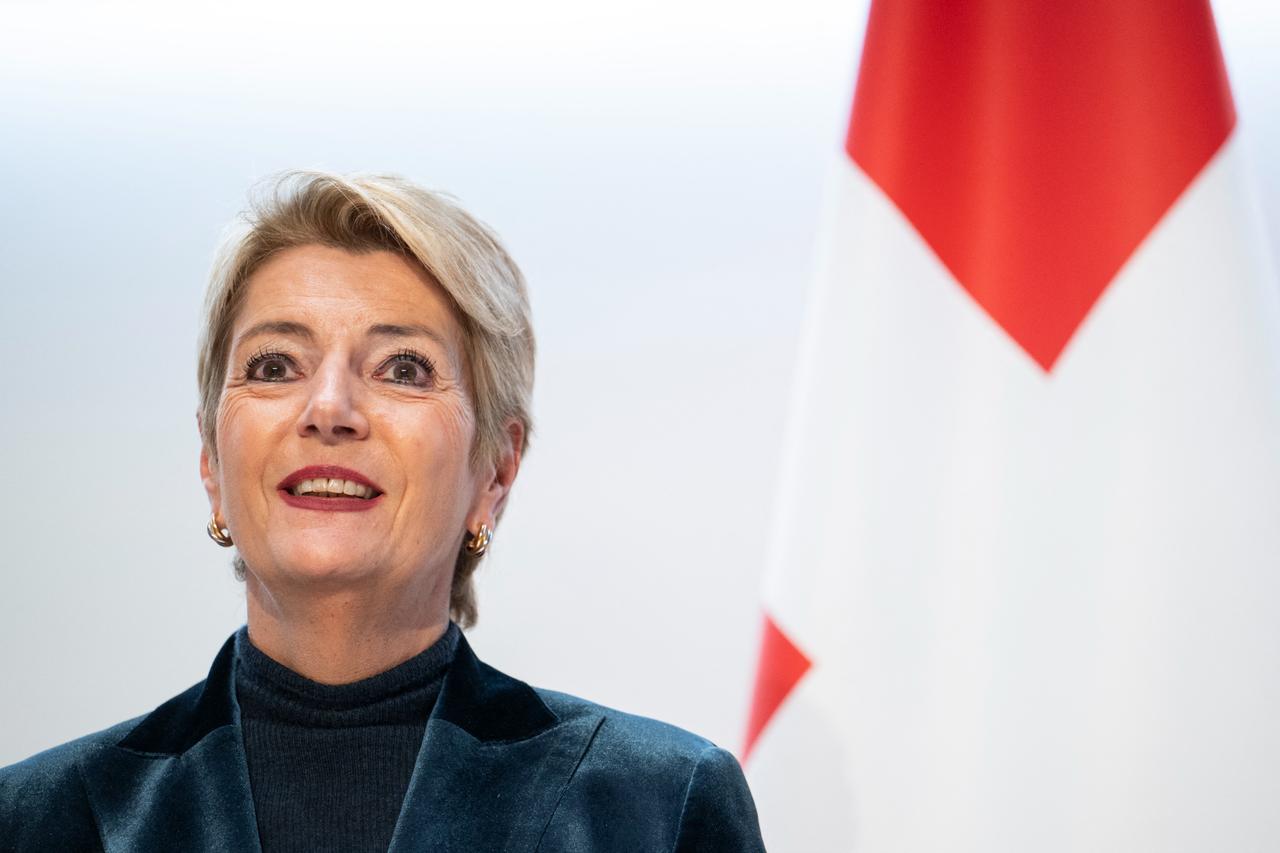
Swiss Confederation President Karin Keller-Sutter highlighted the strong relationship between Switzerland and Türkiye during a meeting with international journalists in the Swiss capital, pointing to significant diaspora connections and robust commercial ties between the two nations.
"We have a very close relationship with Türkiye. We have many Turkish citizens. There is also a large (Turkish) diaspora in Switzerland. We also have a close relationship in terms of trade," Keller-Sutter said when asked about bilateral relations, particularly as the two countries mark the centennial of their Treaty of Friendship signed in 1924.
The remarks came as Keller-Sutter reflected on her year in the rotating Swiss presidency, during which she met with numerous heads of state and observed what she described as a convergence of rarely seen concerns about global economic stability.
"The instability of the economic and political situation was the main topic of many discussions. There was almost unanimous agreement that free trade and multilateralism are being seriously tested," she said.
Switzerland, which belongs to no major political or trade alliance, has been actively pursuing new market access for its export sectors. Keller-Sutter noted that her government is working to sign new free trade agreements and modernize existing ones. This year alone, Switzerland concluded new agreements with Thailand, Kosovo, Malaysia and the Southern Common Market (MERCOSUR), while updating its trade deal with Ukraine. An agreement with India entered into force in October.
The Swiss president also announced that existing free trade agreements with China, the United Kingdom, Mexico and the Southern African Customs Union are being updated. She noted that Swiss Deputy President and Minister of Economic Affairs, Education and Research Guy Parmelin visited Türkiye last week.
Switzerland's relationship with the European Union remains paramount. Keller-Sutter said the Federal Council has negotiated a package agreement to stabilize and develop relations with the EU, Switzerland's main trading partner. After completing a consultation process, the government will analyze positions from relevant parties before submitting the file to Parliament. "A referendum is likely to be held in 2027," she said.

On the question of recognizing Palestinian statehood — a step several European countries have recently taken — Keller-Sutter said Switzerland believes certain conditions must be met first.
"We think that there are some conditions that need to be fulfilled (regarding the recognition of a Palestinian state). There must be a permanent ceasefire, such as all hostages and their bodies must be returned home. There must be a peace plan," she said.
She added that neither the Swiss government nor the majority of the Federal Parliament currently supports recognition, though circumstances could change. "But one day, you know, when the conditions are met, this can happen. But at the same time, there really needs to be a stable government, situations like elections," Keller-Sutter said.
When asked about the 39% tariff the United States has imposed on Switzerland, Keller-Sutter deflected. "You should ask this question to the U.S. President (Donald Trump) because he will decide," she said, adding that Swiss officials remain in contact with their American counterparts but that Trump will make the final decision.

Regarding some Swiss cantons' refusal to accept children from Gaza for medical evacuation, Keller-Sutter explained Switzerland's federalist healthcare system. "This is very natural in Switzerland. The Swiss Confederation, that is, the federal government, does not have hospitals. Health is a matter of the cantons," she said.
While the Justice Ministry and police decided that some Palestinian children should receive healthcare in Switzerland, Keller-Sutter emphasized this was not a government decision and required consultation with cantons. Some cantons accepted the decision while others did not, she said, noting it falls within cantonal jurisdiction and she could not comment further.
On whether events in Gaza constitute genocide, Keller-Sutter said international courts would make that determination.